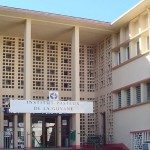Lien vers Pubmed [PMID] – 34217796
Lien vers HAL – Cliquez ici
Lien DOI – 10.1016/j.jep.2021.114384S0378-8741(21)00613-9
J Ethnopharmacol 2021 Oct; 279(): 114384
In French Guiana, traditional phytotherapies are an important part of self-healthcare, however, a precise understanding of the interactions between local phytotherapies and biomedicine is lacking. Malaria is still endemic in the transition area between French Guiana and Brazil, and practices of self-treatment, although difficult to detect, have possible consequences on the outcome of public health policies.The objectives of this research were 1) to document occurences of co-medication (interactions between biomedicine and local phytotherapies) against malaria around Saint-Georges de l’Oyapock (SGO), 2) to quantify and to qualify plant uses against malaria, 3) and to discuss potential effects of such co-medications, in order to improve synergy between community efforts and public health programs in SGO particularly, and in Amazonia more broadly.This cross-sectional study was conducted in 2017 in SGO. Inhabitants of any age and nationality were interviewed using a questionnaire (122 questions) about their knowledge and habits regarding malaria, and their use of plants to prevent and treat it. They were invited to show their potential responses on a poster illustrating the most common antimalarial plants used in the area. In order to correlate plant uses and malaria epidemiology, all participants subsequently received a medical examination, and malaria detection was performed by Rapid Diagnostic Test (RDT) and Polymerase Chain Reaction (PCR).A total of 1566 inhabitants were included in the study. Forty-six percent of them declared that they had been infected by malaria at least once, and this rate increased with age. Every person who reported that they had had malaria also indicated that they had taken antimalarial drugs (at least for the last episode), and self-medication against malaria with pharmaceuticals was reported in 142 cases. A total of 550 plant users was recorded (35.1% of the interviewed population). Among them 95.5% associated pharmaceuticals to plants. All plants reported to treat malaria were shared by every cultural group around SGO, but three plants were primarily used by the Palikur: Cymbopogon citratus, Citrus aurantifolia and Siparuna guianensis. Two plants stand out among those used by Creoles: Eryngium foetidum and Quassia amara, although the latter is used by all groups and is by far the most cited plant by every cultural group. Cultivated species accounts for 91.3% of the use reports, while wild taxa account for only 18.4%.This study showed that residents of SGO in French Guiana are relying on both traditional phytotherapies and pharmaceutical drugs to treat malaria. This medical pluralism is to be understood as a form of pragmatism: people are collecting or cultivating plants for medicinal purposes, which is probably more congruent with their respective cultures and highlights the wish for a certain independence of the care process. A better consideration of these practices is thus necessary to improve public health response to malaria.

